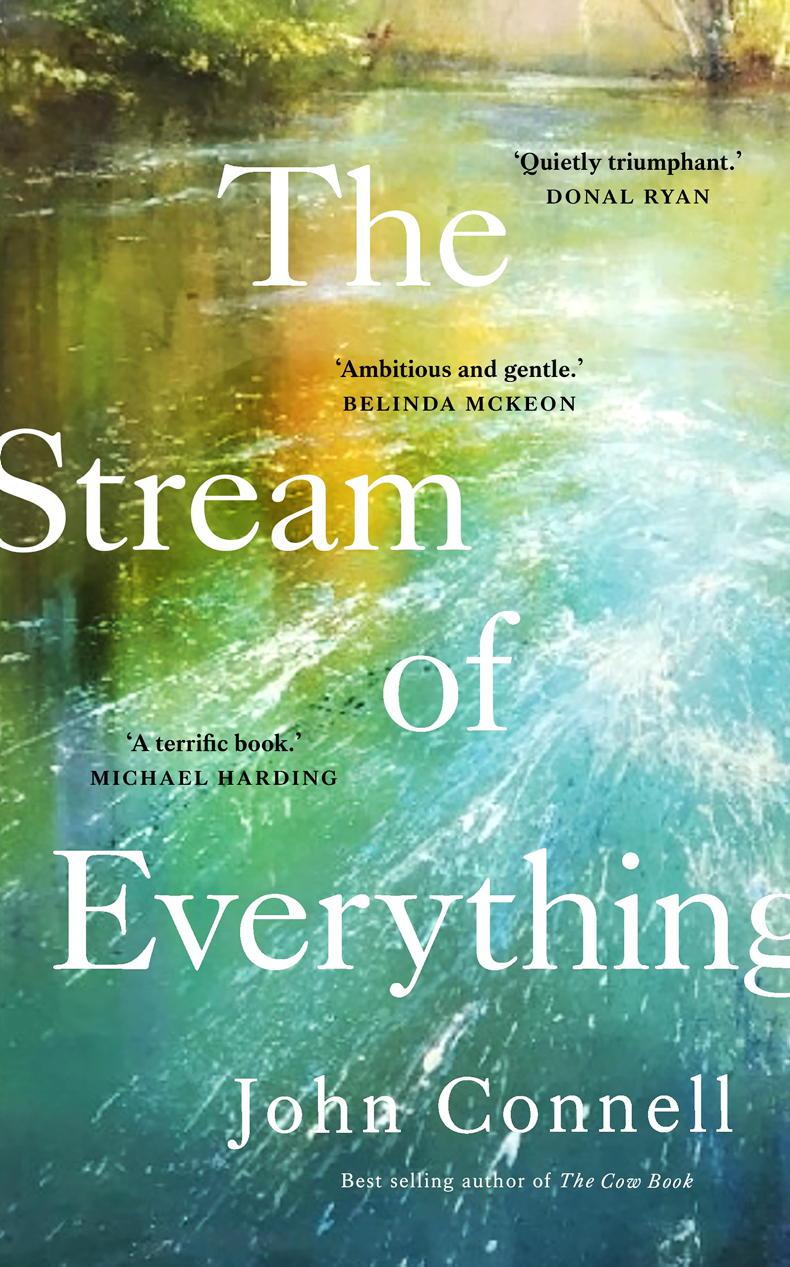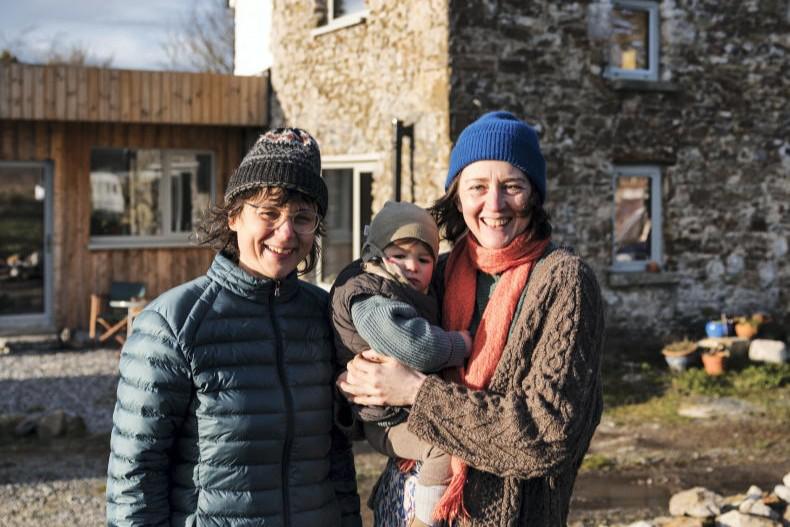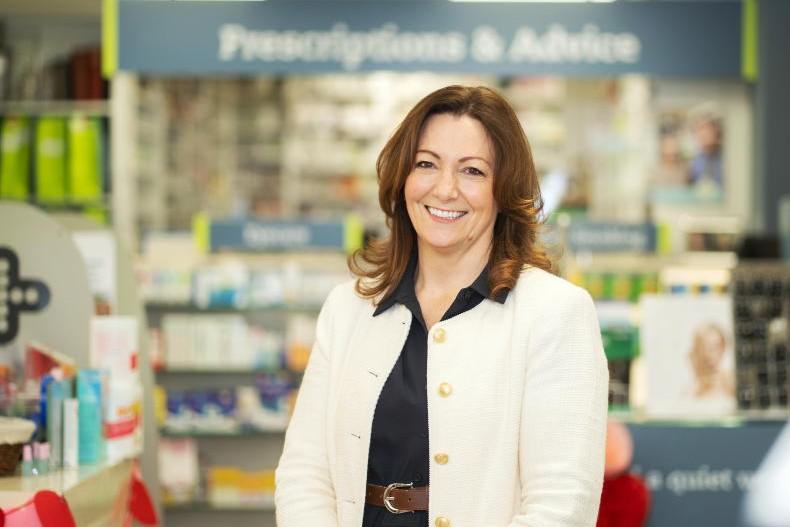It has taken an hour or more, but we have left the great straight. And turning now we can see the land of old Killoe and the Protestant Church of Saint Catherine’s on the distant hill. We are entering the territory of Cullyfad and it does our hearts good to see the horizon once more.
The day is still fine and it has been several hours of paddling since last we rested. It is my turn to call for a stop.
“I’ve got some nice bread roll sandwiches in my bag if you fancy them?”
“What flavour?” Peter asks.
“Ham and cheese.”
“We’ll pull in so,” Peter announces gleefully.
I know just the spot. In my reconnaissance I stopped at the nearby Rhine bridge to check the water levels.
“There’s a lovely low grassy bank just before the bridge and we can pull up and eat.”
A feast
We push on now with the thought of the crumbly bread rolls in our minds. We still have water bottles and a small stash of KitKats, which will be all the sweeter. I’m normally not one to eat chocolate treats but we need the sugar because our paddling has been intense at times.
The water of the straight lowers and clears once more and in it, we see the forms of fish swimming around us. They are not perturbed by our mysterious craft moving through the water, nor by our paddles chopping and slicing. I wonder now what their eyes can perceive. What do they make of us?
“Would you look at that, I can nearly touch them,” says Peter.
There are crayfish in the river too and if they were not protected I’d think of catching a few to make a nice seafood pasta for our supper. The midlands is one of their last strongholds and they have a sanctuary here on this river.
Overhead now we hear the distinctive cries of geese flying over us and look up to see three companions pass in a V. All is one in this most glorious moment.
Soon we see the Rhine bridge and pull our craft in. Peter steps out of the boat first and then, since I’m at the front, I use one of our bags as weight and tie the front rope to it to anchor us.
“I don’t know about you, but I’m hungry,” says Peter. I agree and unfurl the sandwich rolls. Unfortunately, they have become a little soggy from water in the boat but we are so hungry we do not mind. The hot day has melted the cheese somewhat, but it is a feast, if a small one.
I break open the chocolate bars and we eat and drink our water in the quiet way of hungry workmen.
Memories
The sun shines gently upon us. It is six o’clock, but one would not know. Such is the northern European summer that the day has hours of light left.
“That’s a lovely little church,” says Peter as we lean back now, our bellies full.
“I was there a long time ago with a girl,” I say.
I do not think I have returned to Saint Catherine’s grounds since, but seven years ago I was there with a woman I had intended to spend the rest of my life with. I did not live in this land then; I had made my life in Canada. We were happy, and such was our happiness that I proposed to her at that old church late one evening when we had come to visit my family on holiday.
Life was good for a time but then slowly a dark depression grew in me and soon I began to withdraw from her and the world.
When we came to Ireland for a family event a year later I was a different man, a shadow figure. I left her at the airport after the event, promising that I would see my new Canadian family in a few days. I never did go back to Toronto. Shortly after that, I fell into a deep hole of melancholia, for the second time in four years, and it nearly took my life. Depression is an opportunity for change, though I did not see it that way then; no, rather it was a prison without a key. But it would not last for ever. It was the beginning of a long journey that has brought me here to this river.
“Who was she?” Peter asks now.
“Someone from a long time ago, someone I’m leaving here on the river. Sometimes you have to say goodbye to things.”
“It’s a lovely church,” I add now, clearing the vestige of an old hurt from my throat, and stand up to get a better look at it.
Hinterland of the heart
I was going to get married in it but I do not tell Peter this, nor do I tell him the woman’s name, or anything from that tragic time. Peter, ever the friend and wise man, does not press me further. Sometimes silence is enough to let one know that we are there for each other. I keep the facts between me and the river. It is one of the weights I carry in the deep water of the Camlin, but one that I will let go of here too. Sometimes hurts have served their purpose.
We are on the hinterland of a new townland and a hinterland of my heart. It is funny what a journey does.
I sit down again, open the tinfoil wrapping on another KitKat and savour its soft wafer and chocolate in my mouth.
“The bit of food is great.”
“It’s a real lifesaver,” replies Peter.
“We’ll have some sausages and rashers when we get to Carriglass.”
“Amen to that.”
Extract from The Stream of Everything by John Connell.

The Stream of Everything by John Connell, published by Gill Books and available nationwide, RRP €17.99.
Read more
The prison of depression
Meet writer, farmer and mental health advocate John Connell
It has taken an hour or more, but we have left the great straight. And turning now we can see the land of old Killoe and the Protestant Church of Saint Catherine’s on the distant hill. We are entering the territory of Cullyfad and it does our hearts good to see the horizon once more.
The day is still fine and it has been several hours of paddling since last we rested. It is my turn to call for a stop.
“I’ve got some nice bread roll sandwiches in my bag if you fancy them?”
“What flavour?” Peter asks.
“Ham and cheese.”
“We’ll pull in so,” Peter announces gleefully.
I know just the spot. In my reconnaissance I stopped at the nearby Rhine bridge to check the water levels.
“There’s a lovely low grassy bank just before the bridge and we can pull up and eat.”
A feast
We push on now with the thought of the crumbly bread rolls in our minds. We still have water bottles and a small stash of KitKats, which will be all the sweeter. I’m normally not one to eat chocolate treats but we need the sugar because our paddling has been intense at times.
The water of the straight lowers and clears once more and in it, we see the forms of fish swimming around us. They are not perturbed by our mysterious craft moving through the water, nor by our paddles chopping and slicing. I wonder now what their eyes can perceive. What do they make of us?
“Would you look at that, I can nearly touch them,” says Peter.
There are crayfish in the river too and if they were not protected I’d think of catching a few to make a nice seafood pasta for our supper. The midlands is one of their last strongholds and they have a sanctuary here on this river.
Overhead now we hear the distinctive cries of geese flying over us and look up to see three companions pass in a V. All is one in this most glorious moment.
Soon we see the Rhine bridge and pull our craft in. Peter steps out of the boat first and then, since I’m at the front, I use one of our bags as weight and tie the front rope to it to anchor us.
“I don’t know about you, but I’m hungry,” says Peter. I agree and unfurl the sandwich rolls. Unfortunately, they have become a little soggy from water in the boat but we are so hungry we do not mind. The hot day has melted the cheese somewhat, but it is a feast, if a small one.
I break open the chocolate bars and we eat and drink our water in the quiet way of hungry workmen.
Memories
The sun shines gently upon us. It is six o’clock, but one would not know. Such is the northern European summer that the day has hours of light left.
“That’s a lovely little church,” says Peter as we lean back now, our bellies full.
“I was there a long time ago with a girl,” I say.
I do not think I have returned to Saint Catherine’s grounds since, but seven years ago I was there with a woman I had intended to spend the rest of my life with. I did not live in this land then; I had made my life in Canada. We were happy, and such was our happiness that I proposed to her at that old church late one evening when we had come to visit my family on holiday.
Life was good for a time but then slowly a dark depression grew in me and soon I began to withdraw from her and the world.
When we came to Ireland for a family event a year later I was a different man, a shadow figure. I left her at the airport after the event, promising that I would see my new Canadian family in a few days. I never did go back to Toronto. Shortly after that, I fell into a deep hole of melancholia, for the second time in four years, and it nearly took my life. Depression is an opportunity for change, though I did not see it that way then; no, rather it was a prison without a key. But it would not last for ever. It was the beginning of a long journey that has brought me here to this river.
“Who was she?” Peter asks now.
“Someone from a long time ago, someone I’m leaving here on the river. Sometimes you have to say goodbye to things.”
“It’s a lovely church,” I add now, clearing the vestige of an old hurt from my throat, and stand up to get a better look at it.
Hinterland of the heart
I was going to get married in it but I do not tell Peter this, nor do I tell him the woman’s name, or anything from that tragic time. Peter, ever the friend and wise man, does not press me further. Sometimes silence is enough to let one know that we are there for each other. I keep the facts between me and the river. It is one of the weights I carry in the deep water of the Camlin, but one that I will let go of here too. Sometimes hurts have served their purpose.
We are on the hinterland of a new townland and a hinterland of my heart. It is funny what a journey does.
I sit down again, open the tinfoil wrapping on another KitKat and savour its soft wafer and chocolate in my mouth.
“The bit of food is great.”
“It’s a real lifesaver,” replies Peter.
“We’ll have some sausages and rashers when we get to Carriglass.”
“Amen to that.”
Extract from The Stream of Everything by John Connell.

The Stream of Everything by John Connell, published by Gill Books and available nationwide, RRP €17.99.
Read more
The prison of depression
Meet writer, farmer and mental health advocate John Connell











SHARING OPTIONS